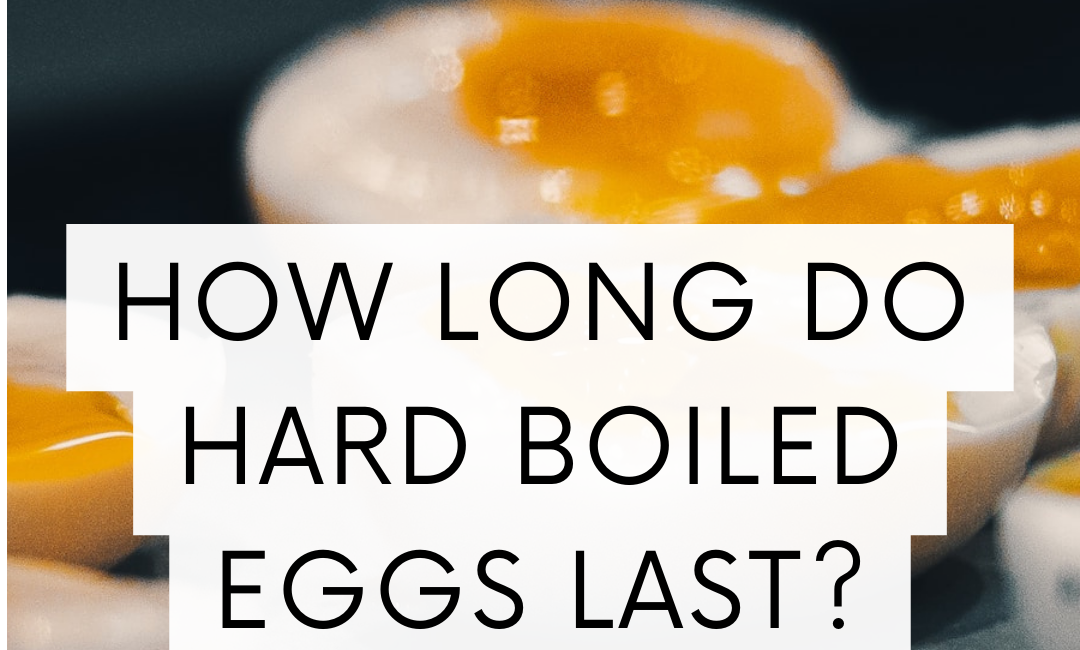Introduction
Hard-boiled eggs are a versatile and nutritious food that can be enjoyed in various ways, whether as a standalone snack, a salad topping, or in sandwiches. However, when you have a surplus of hard-boiled eggs or if you’re unsure about their shelf life, it’s important to know how long they can be safely stored. In this comprehensive guide, we will explore the shelf life of hard-boiled eggs, factors that affect their longevity, proper storage techniques, and signs of spoilage to ensure that you can enjoy your hard-boiled eggs safely and with peace of mind.
Factors Affecting the Shelf Life of Hard-Boiled Eggs
Several factors can influence how long hard-boiled eggs remain safe to eat. Understanding these factors is crucial for determining their shelf life. Here are the key factors to consider:
Age of the Eggs The age of the eggs at the time of boiling can affect their shelf life. Freshly boiled eggs have a longer shelf life compared to eggs that were nearing their expiration date before boiling.
Shell Integrity The condition of the eggshell is another important factor. Eggs with cracks or compromised shells are more susceptible to bacterial contamination, which can shorten their shelf life.
Peeling If you plan to store hard-boiled eggs, it’s generally recommended to keep them in their shells until ready to use. Peeling the eggs exposes them to air and can lead to moisture loss and quicker spoilage.
Storage Method Proper storage plays a significant role in extending the shelf life of hard-boiled eggs. Factors such as temperature, humidity, and air circulation can affect their freshness and safety.
Shelf Life of Hard-Boiled Eggs
The shelf life of hard-boiled eggs depends on the factors mentioned above. Here are some general guidelines to help you understand how long hard-boiled eggs typically last:
Unpeeled Hard-Boiled Eggs When unpeeled and properly refrigerated, hard-boiled eggs can last for about one week. This assumes the eggs were boiled and refrigerated promptly after cooking. After a week, the quality may begin to decline, and the eggs might develop a stale flavor.
Peeled Hard-Boiled Eggs Peeled hard-boiled eggs have a shorter shelf life compared to unpeeled ones. When refrigerated, peeled hard-boiled eggs can generally last for up to three to four days. However, they may lose moisture and become rubbery over time.
It’s worth noting that these guidelines are general recommendations, and individual factors may impact the actual shelf life of your hard-boiled eggs. Always assess the eggs for signs of spoilage before consuming.
Proper Storage of Hard-Boiled Eggs
To maximize the shelf life of hard-boiled eggs, proper storage is crucial. Follow these guidelines to ensure their freshness and safety:
Refrigeration Hard-boiled eggs should be promptly refrigerated. Place them in a covered container or keep them in their original egg carton to protect them from absorbing odors and prevent moisture loss.
Temperature Store hard-boiled eggs in the refrigerator at a temperature of 40°F (4°C) or below. This low temperature helps inhibit bacterial growth and maintain their quality.
Avoid the Fridge Door To minimize temperature fluctuations, avoid storing hard-boiled eggs in the refrigerator door. Instead, place them on a shelf toward the back of the refrigerator, where the temperature is most stable.
Separate from Strong-Smelling Foods Hard-boiled eggs have a porous shell that can absorb odors from strong-smelling foods. Keep them separate from pungent items like onions, garlic, or certain cheeses to preserve their flavor.
Unpeeled Storage For longer shelf life, store hard-boiled eggs in their shells until you’re ready to eat them. This helps maintain their freshness and minimizes moisture loss.
Peeled Storage If you prefer to peel your hard-boiled eggs before refrigerating them, store them in a covered container or wrap them tightly with plastic wrap. This helps retain moisture and prevents them from absorbing odors.
Signs of Spoilage
To ensure the safety and quality of your hard-boiled eggs, it’s essential to be able to identify signs of spoilage. Here are some indicators that your hard-boiled eggs may no longer be safe to eat:
Off Odor If the hard-boiled eggs emit a foul or sulfuric smell, it’s a clear sign of spoilage. Discard them immediately.
Slimy Texture If the egg white or yolk appears slimy or develops a sticky texture, it indicates bacterial growth and spoilage. In this case, the eggs should not be consumed.
Mold The presence of mold on the shell or inside the peeled egg is a clear indication of spoilage. Discard the eggs without consuming them.
Off-Color or Discoloration If the egg white or yolk exhibits unusual colors, such as green, gray, or pinkish hues, it signifies spoilage. These eggs should not be consumed.
Utilizing Hard-Boiled Eggs
Hard-boiled eggs are a versatile ingredient that can be used in a variety of dishes. Here are a few ideas for incorporating them into your meals:
Snacks: Enjoy hard-boiled eggs as a standalone snack by sprinkling them with salt, pepper, or your favorite seasonings.
Salads: Chop hard-boiled eggs and add them to green salads, pasta salads, or grain bowls for added protein and flavor.
Sandwiches: Slice hard-boiled eggs and use them as a filling in sandwiches or wraps, along with fresh vegetables and spreads.
Deviled Eggs: Cut hard-boiled eggs in half, remove the yolks, and mix them with mayonnaise, mustard, and seasonings to create delicious deviled eggs.
Egg Salad: Mash hard-boiled eggs with mayonnaise, mustard, herbs, and seasonings to make a classic egg salad, perfect for sandwiches or as a dip.
Conclusion
In conclusion, hard-boiled eggs have a limited shelf life and should be stored properly to ensure their freshness and safety. Unpeeled hard-boiled eggs can last for about a week in the refrigerator, while peeled eggs have a shorter shelf life of up to three to four days. Remember to promptly refrigerate your hard-boiled eggs, store them in a covered container or in their shells, and keep them separate from strong-smelling foods. Be aware of signs of spoilage, such as off odors, sliminess, mold, or discoloration, and discard any eggs that exhibit these characteristics. With proper storage and timely consumption, you can enjoy the versatility and nutritional benefits of hard-boiled eggs in various dishes.



